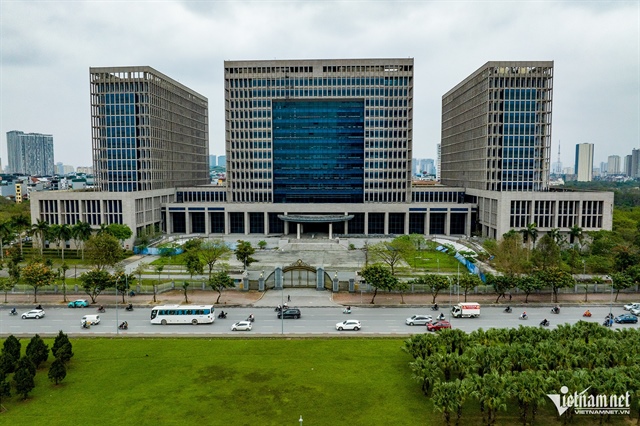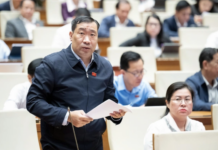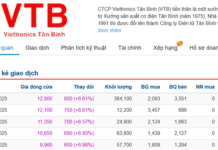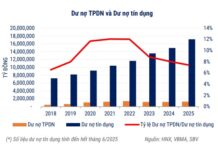Vietnam’s Government Inspectorate has released its findings on the inspection of the Ministry of Foreign Affairs’ new headquarters construction project.
Over 10 Years Delayed, Numerous Violations During Implementation
The Ministry of Foreign Affairs is the investor of the new headquarters project on Le Quang Dao Street (Hanoi). In 2007, the project management board was established. After several adjustments, the total investment reached over VND 6.9 trillion.
According to the conclusion, the Ministry of Foreign Affairs’ headquarters project was approved by the Prime Minister on October 22, 2007. After approval, the Ministry of Foreign Affairs began implementation, but the process revealed numerous shortcomings, defects, and violations, primarily due to subjective reasons.

Ministry of Foreign Affairs Headquarters. Photo: Bao Kien |
To date, the project remains incomplete, delayed by over 10 years, with four extensions (from 2014 to 2025), failing to meet its objectives, causing waste, and posing a risk of state budget losses.
The Government Inspectorate noted that halting construction in phases led to increased costs for warranties, repairs, bank guarantees, and management, exceeding regulations.
Buildings A and B (right) completed their rough construction and exterior finishes by late 2016, with a total value of VND 1,666.5 billion for construction and equipment, yet after nearly 9 years, they remain undelivered and unused.
Between 2009 and 2024, allocated funds were not fully utilized, risking waste under the 2013 Law on Thrift Practice and Waste Prevention. Additionally, some components were put into use without formal acceptance or handover, and the Ministry of Foreign Affairs failed to depreciate fixed assets as required by financial regulations.
The Government Inspectorate stated: The responsibility for the project’s delays, incomplete status, and potential state budget waste lies with the Minister, Deputy Minister of Foreign Affairs in charge of the project, the Administration and Finance Department, the project management board, and related individuals and units.
Transfer of Files with Criminal Violation Signs to the Ministry of Public Security
The Government Inspectorate has transferred files and documents of cases with criminal violation signs to the Ministry of Public Security for consideration and handling according to regulations.
These cases show signs of violating Articles 222 (violating bidding regulations causing serious consequences), 224 (violating construction investment regulations causing serious consequences), and 219 (violating state asset management and use regulations causing losses and waste) of the Penal Code.
The conclusion highlights that the architectural design competition board arbitrarily lowered the passing score from 70 to 60, adding a disqualified entry to the rankings. This led to a South Korean consulting firm scoring 68.3 being selected, while a German firm scoring 78.2 was disqualified—violating competition rules and causing severe consequences.
The Ministry of Foreign Affairs then directly awarded 20 contracts totaling over VND 4,388 billion, exceeding the approved investment limit by VND 904 billion. This action was deemed contrary to the Prime Minister’s directives, violating construction investment cost management principles, causing delays, and risking state budget losses.
Additionally, phase 1 consulting cost estimates were duplicated, causing a provisional loss of VND 42.9 billion; violations in hiring foreign consultants resulted in a loss of VND 79.2 billion; and improper payment of author supervision fees led to a loss of VND 5.4 billion. In total, these violations caused a provisional loss of VND 127.5 billion.
The inspection also found that equipment pricing lacked basis, with significant discrepancies compared to import prices (2 to 13 times higher), resulting in a difference of over VND 108 billion. Over VND 4 trillion has been spent on the project, yet it remains unfinished.
The Government Inspectorate recommends the Prime Minister direct the Ministry of Foreign Affairs to review and strictly handle the responsibilities of involved collectives and individuals across different periods.
Additionally, the State Audit Office is requested to audit the total investment and project settlement to inform subsequent handling steps.
The inspection conclusion has been forwarded to the Central Inspection Commission for review and handling within its authority. During implementation, if criminal law violations causing asset losses are discovered, relevant units must transfer files to investigative agencies for handling according to regulations.
Vu Diep
– 07:57 01/11/2025
FPT Telecom: SCIC Registers Transfer of 370.7 Million Shares to the Ministry of Public Security
SCIC has initiated the sale of its entire stake in FPT Telecom (UPCoM: FOX), totaling over 370 million shares, as part of the transfer of state capital management to the Ministry of Public Security. This move comes as FPT Telecom continues to set new quarterly profit records and maintains a substantial cash reserve, accounting for more than half of its total assets.
Eight Key MobiFone Leaders Integrated into the People’s Public Security Forces
After transitioning from the State Capital Management Commission to the Ministry of Public Security eight months ago, MobiFone Telecommunications Corporation has emerged as a key player in serving national security and defense. This shift has marked a significant transformation, with the company demonstrating notable progress in its new role.












































